Perek Shira – Chapter 2
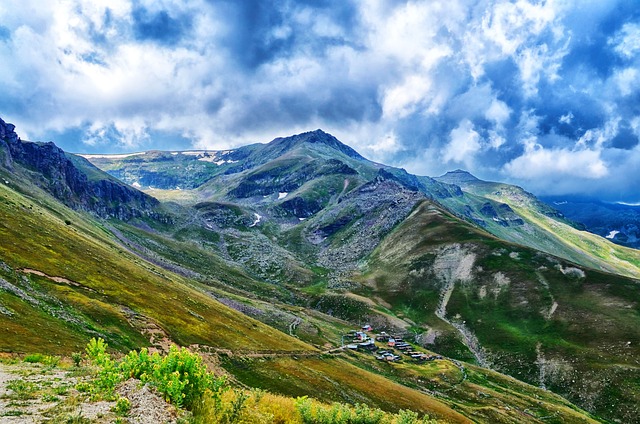
The day says, “Day to day utters speech, and night to night relates knowledge.” (Psalms 19:3)
The Midrash Tanchuma on parshas Mishpatim explains that everything in creation borrows from one another. Day borrows time from the night, and vice versa, but they don’t file complaints in court as people do, as verse 19:4 continues, “There is no speech and there are no words….”
לַיְלָה אוֹמֵר לְהַגִּיד בַּבֹּקֶר חַסְדֶּךָ וֶאֱמוּנָתְךָ בַּלֵילוֹת

According to Brachos 12a, this verse is the source of the practice to follow Shema with “emes v’yatziv” (true and firm) by day, and with “emes ve’emunah” (true and trustworthy) at night.
שֶׁמֶשׁ אוֹמֵר שֶׁמֶשׁ יָרֵחַ עָמַד זְבֻלָה לְאוֹר חִצֶּיךָ יְהַלֵּכוּ לְנֹגַהּ בְּרַק חֲנִיתֶּךָ
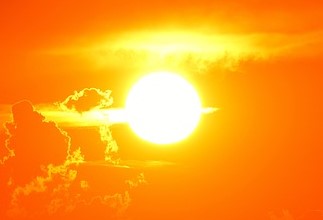
The Targum Yonason explains that this refers to the battle of Gibeon (Joshua chapter 10), in which God caused the sun to stand still – a great display of His might!
יָרֵחַ אוֹמֶרֶת עָשָׂה יָרֵחַ לְמוֹעֲדִים שֶׁמֶשׁ יָדַע מְבוֹאוֹ
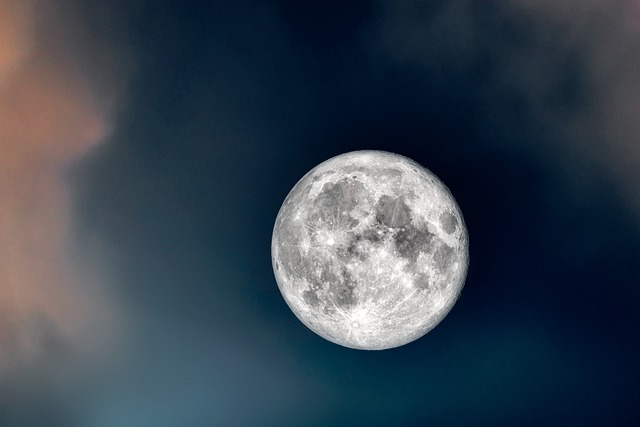
The Aruch HaShulchan (OC 426:2) explains that we bless the moon more than we do the stars because of its proximity to Earth. It inspires in us a feeling for God’s greatness since its path and phases are perceptible throughout the month.
כּוֹכָבִים אוֹמְרִים אַתָּה הוּא יי לְבַדֶּךָ אַתָּה עָשִׂיתָ אֶת הַשָּׁמַיִם שְׁמֵי הַשָּׁמַיִם וְכָל צְבָאָם הָאָרֶץ וְכָל אֲשֶׁר עָלֶיהָ הַיַּמִּים וְכָל אֲשֶׁר בָּהֶם וְאַתָּה מְחַיֶּה אֶת כֻּלָּם וּצְבָא הַשָּׁמַיִם לְךָ מִשְׁתַּחֲוִים
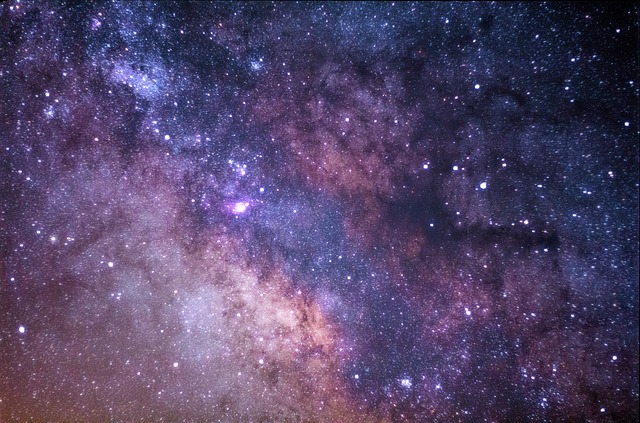
The Ralbag explains that when a human being makes something, the creation no longer requires the creator’s attention. God’s creations are not this way. As long as we exist, we rely upon Him in order to endure.
עָבִים אוֹמְרִים יָשֶׁת חֹשֶׁךְ סִתְרוֹ סְבִיבוֹתָיו סֻכָּתוֹ חֶשְׁכַת מַיִם עָבֵי שְׁחָקִים
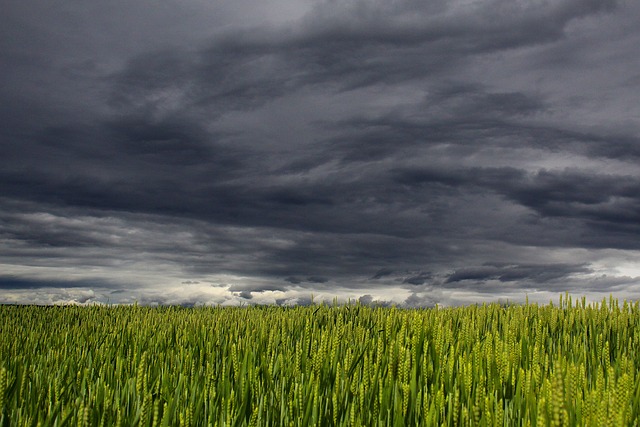
In parshas Bo, God tells Moshe to stretch his hand heavenward to trigger the plague of darkness. Where did this darkness come from? Shemos Rabbah cites the opinion of Rabbi Yehuda, that the darkness came from this “booth” that metaphorically envelops God.
עַנְנֵי כָּבוֹד אוֹמְרִים אַף בְּרִי יַטְרִיחַ עָב יָפִיץ עֲנַן אוֹרוֹ

The first two words of this verse in Hebrew are “af b’ri”; Rashi tells us that this is the name of the angel in charge of the clouds. (Another meaning of “af” in Hebrew is anger; another meaning of “b’ri” is health. This is indicative of the two ways God can send us rain, depending on what we deserve.)
רוּחַ אוֹמֵר אֹמַר לַצָּפוֹן תֵּנִי וּלְתֵימָן אַל תִּכְלָאִי הָבִיאִי בָנַי מֵרָחוֹק וּבְנוֹתַי מִקְצֵה הָאָרֶץ

The Talmud in Menachos (110a) says that “sons” in the verse refers to those exiled to Babylonia, while “daughters” refers to those exiled to other lands. (Babylonia was the post-exile center of Torah, and Torah-study was the occupation of sons rather than of daughters.)
בְּרָקִים אוֹמְרִים בְּרָקִים לַמָּטָר עָשָׂה מוֹצֵא רוּחַ מֵאוֹצְרוֹתָיו
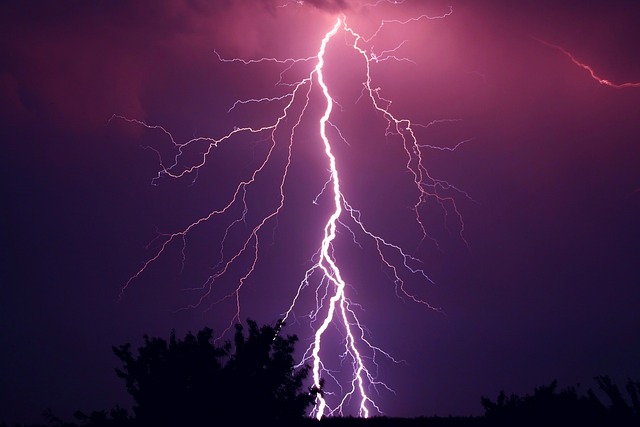
The Malbim explains that when God wants to make it rain, He separates electricity from the clouds in the form of lightning. Through this, He takes wind from His storehouses. He separates the essence of the wind in the form of steam, making it rain. (This is a spiritual rather than a scientific description of the process.)
טַל אוֹמֵר אֶהְיֶה כַטַּל לְיִשְׂרָאֵל יִפְרַח כַּשּׁוֹשַׁנָּה וְיַךְ שָׁרָשָׁיו כַּלְּבָנוֹן

The Talmud in Taanis 4a says that the Jews likened their relationship with God to the rain. God replied, “I’ll do you one better! Rain is sometimes desirable, but not always. I will be to you like the dew, which is always a blessing!”
גְּשָׁמִים אוֹמְרִים גֶּשֶׁם נְדָבוֹת תָּנִיף אֱלֹהִים נַחֲלָתְךָ וְנִלְאָה אַתָּה כוֹנַנְתָּהּ
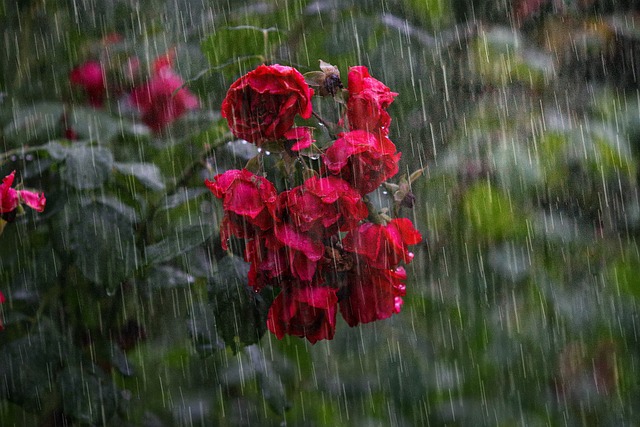
The ibn Ezra clarifies that God’s “inheritance” is the land of Israel, to which He always pays attention. When the land is metaphorically weary, God sustains it.
